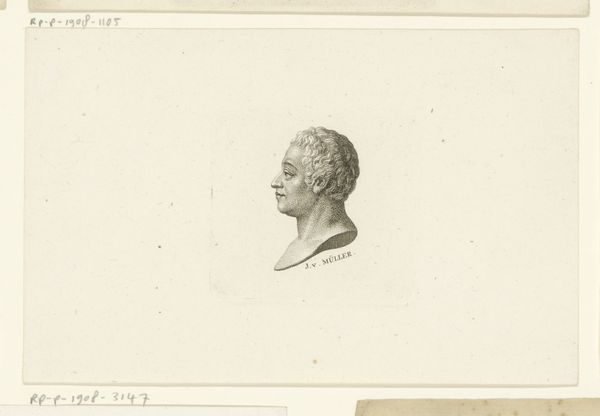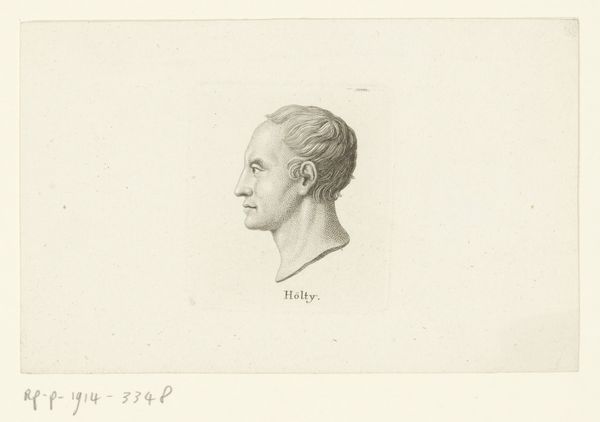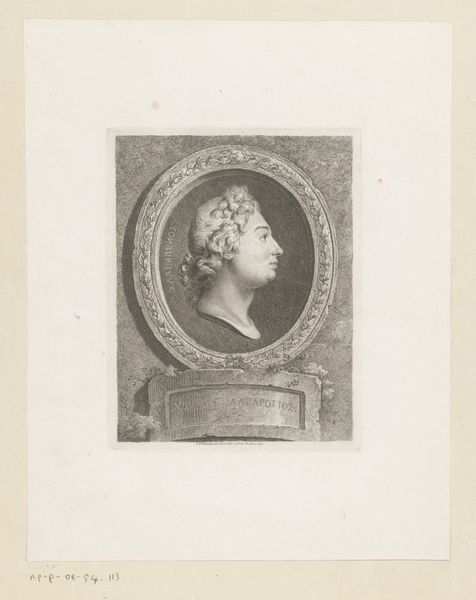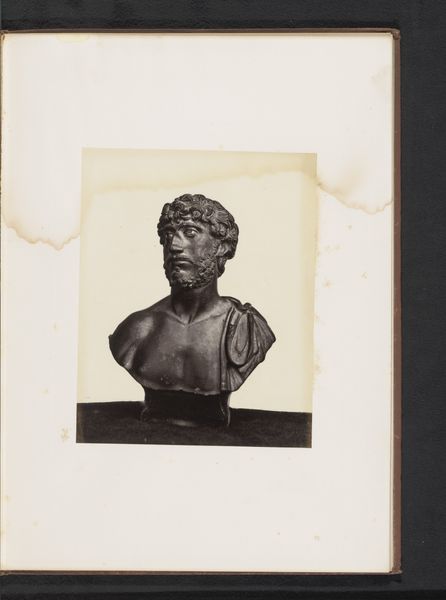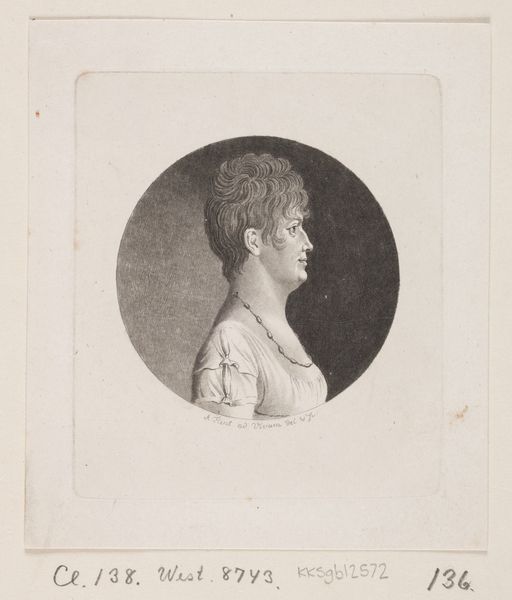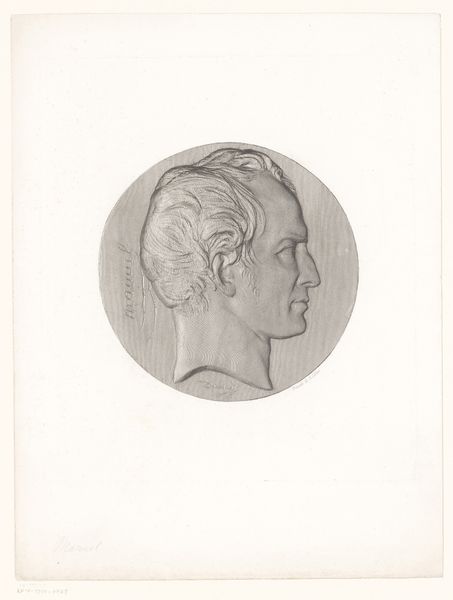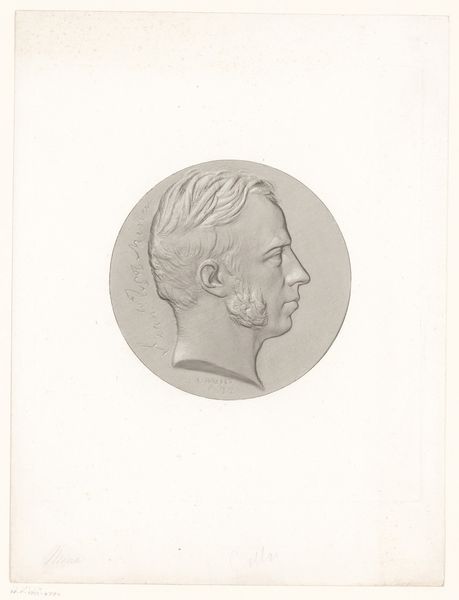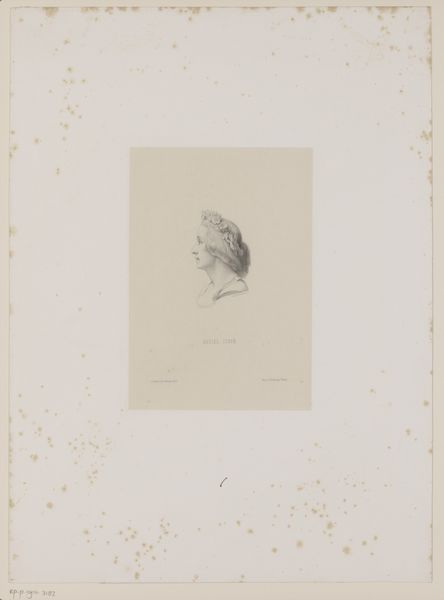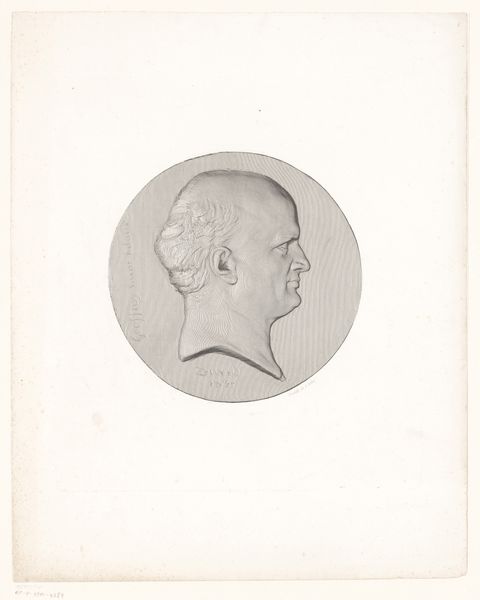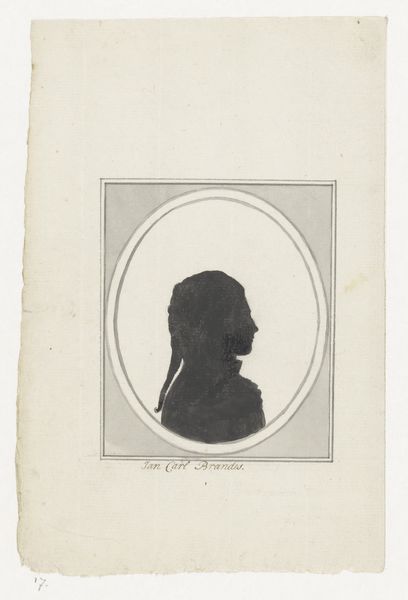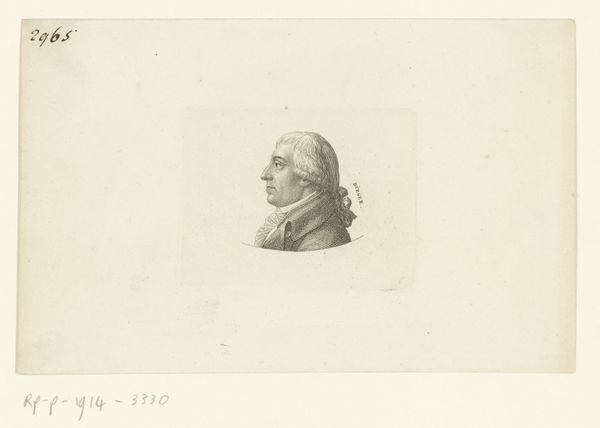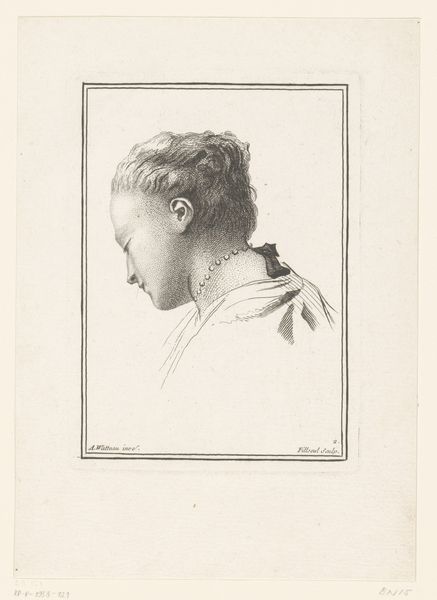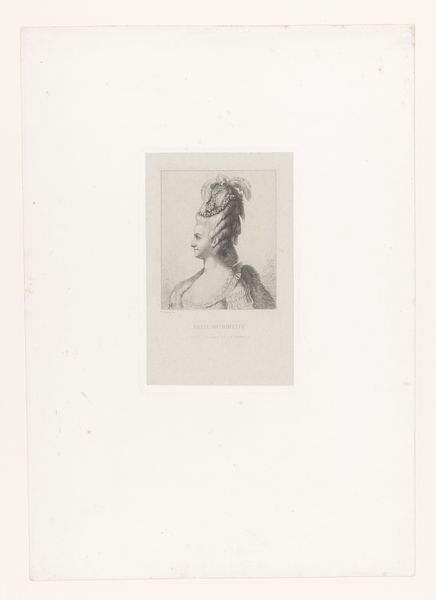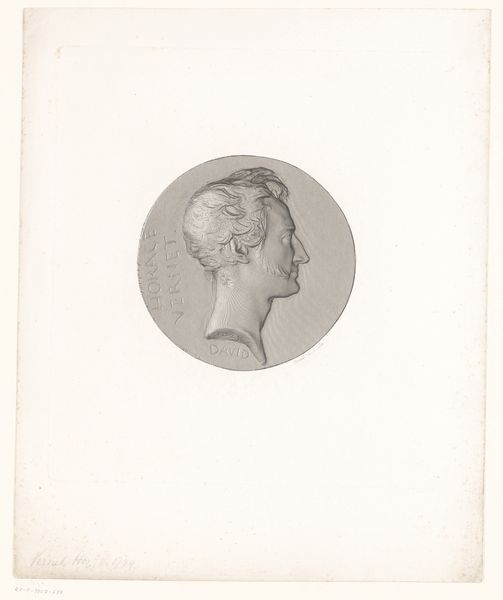
print, engraving
#
portrait
#
pencil drawn
#
neoclacissism
#
light pencil work
# print
#
pencil sketch
#
old engraving style
#
form
#
line
#
pencil work
#
academic-art
#
engraving
#
realism
Dimensions: height 51 mm, width 79 mm
Copyright: Rijks Museum: Open Domain
Curator: Well, here we have a print titled "Portret van Johann Joachim Winckelmann," created sometime between 1775 and 1840 by Ernst Ludwig Riepenhausen. It's an engraving, a medium that was very popular at the time for circulating images. Editor: He looks serious. There's something incredibly stark and…exposed about this lone head floating in so much blank space. Curator: It’s meant to be a Neoclassical portrait, invoking the style of ancient Roman busts. Winckelmann was a hugely influential figure, a pioneering art historian and archaeologist who essentially founded the study of ancient Greek and Roman art. Editor: Right, that makes sense. I get the historical callback now, it’s that air of serious intellectualism. Yet the line work is so delicate, the almost hesitant shading... it softens the supposed authority. Does that come from it being an engraving? Curator: Exactly. The engraving allows for incredibly fine details, almost like a pencil sketch. It allowed for the dissemination of his likeness. And Neoclassicism was all about elevating reason, order, and clarity, aligning perfectly with Winckelmann's scholarly pursuits. Though I’ll admit, it sometimes veers into a rather severe, detached aesthetic. Editor: And detached it is! It feels like this guy's been surgically removed from his context and pinned onto a sterile background. I am just sitting here wondering what he would make of all this if he could see it. All that seriousness. It’s almost…funny? Curator: Perhaps. It reminds me that even the most august figures were, ultimately, just people. But that his ideas helped shape entire artistic movements that still echo today, there's nothing funny about that. Editor: I see your point. The ghost of antiquity, made flesh and re-presented again and again. The ripples of one man’s vision across centuries. And the power of the line...It's humbling. Curator: Indeed. Perhaps that’s why this slightly severe portrait, with its delicate lines, can still captivate us today.
Comments
No comments
Be the first to comment and join the conversation on the ultimate creative platform.
